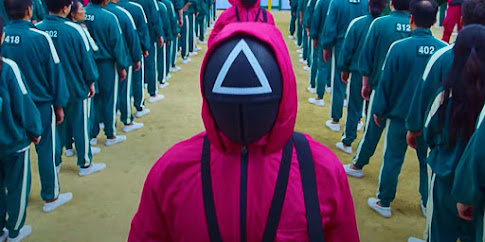Bueno aquí estas estos son, ya les presenté a los personajes que me acompañaron durante los 9 meses más intensos de mi vida, y con la palabra intenso me quedo corta.
Para que se den una idea cada unidad de medicina interna en donde trabajaba tiene capacidad para unas 40 camas, y unas 6 en terapia semi-intensiva, y en ese hospital había unas 6 unidades, así que imagínense el tamaño del hospital, claro que cada una tenía distinta reputación, la mía según se rumoreaba en los pasillos gozaba de una bastante buena en su momento, pero últimamente venia en picada y allí fue cuando llegue yo.
Durante el día estaba lleno de gente; familiares, enfermeras, estudiantes, residentes, jefes de servicio, asistentes sociales, etc. Pero a las 4 pm la gente empezaba a desaparecer, casi como intuyendo lo que se venía en las próximas horas y allí es donde el residente de turno se quedaba solo con su pobre alma y comenzaba la tan temible; guardia de medicina interna.
Les confieso que ya les hice un post spoiler alert sobre las guardias allí, (Mi peor guardia) pero no me alcanzo uno solo para contar con detalle lo que fue ese calvario, para empezar mi primera guardia fue obviamente en medio de (Los misiles), claro los infaltables, que más le gustaría a esta pobre medica argentina muerta de miedo de enfrentarse a su primera noche sola a cargo de semejante servicio, que unas buenas sirenas y corridas al refugio anti-bombas para descontracturar.
En Argentina me hubieran convidado unos mates, en Israel te tiran unos misiles, te cierran dos unidades de medicina interna por razones de seguridad (estaban muy expuestas si llegaba a caer el misil en cuestión) lo que significada que automáticamente comenzaba la guardia con 15 traslados nuevos, hermoso.
La primera no estuvo tan mal, los otros residentes se quedaron y me ayudaron, la verdad que siempre hubo mucho compañerismo, o compasión si se lo quiere decir, todos sabíamos que una o dos veces por semana el pobre infeliz de turno iba a ser uno de nosotros, así que tratábamos de dejarle todo lo más ordenado posible, teníamos códigos, sabíamos lo que significaba esas noches de soledad, pánico y llanto.
Hasta las 8-10 pm, el ritmo de trabajo era tolerable, los pacientes todavía estaban en la sala de emergencia abajo esperando ser atendidos para ver si eran internaban o no, pero después de las 11 pm la cosa se empezaba a poner fea, uno tras otros te iban llegando los ingresos, sin parar, desde las cosas más tontas, hasta los posibles infartos, pasando por mujeres golpeadas hasta ancianos con infecciones urinarias, hasta ahí más o menos lo podía manejar, pero el peor de los miedos era; PEQSD (El paciente estable que se descompensa).
Siempre era el menos pensado, porque después de tanto tiempo ya con Vladimir tratábamos de anticiparnos quien podía ser el pobre paciente que te puede dar problemas a la noche y no dejarte dormir (como si dormirías si eso no pasara), obviamente nunca le acertábamos, y era la sorpresa de la noche, porque con ese solo paciente todos tus recursos mentales, tiempo y energía se iban a ser destinados a el, lo que significada que no iba a tener ni tiempo de ir al baño, te ibas a casi infartar del stress y te quedarías hasta después de la guardia para terminar de escribir tus ingresos.
La peor experiencia que tuve con un PEQSD, fue un sábado a la mañana, 8:55 am, el cambio de guardia es a las 9 am, Samir llego un ratito antes entonces le pude hacer el pase a tiempo y ya para es ahora me estaba yendo a cambiar cuando escucho a la enfermera gritar: “El paciente de las 44 no reacciona, activemos el código de resucitación ”, cuando llegue a la habitación, Samir ya estaba arriba del paciente haciéndole RCP, era un hombre de unos 50 años que se había ingresado el jueves por un dolor en el pecho, todos los estudios para descartar un infarto le dieron normal y el electro no tenía nada raro, lo dejamos una noche mas para controlarlo, se sentía bien, y a la mañana estaba desayunando cuando de repente se desplomo.
Después de un largo de intentos de resucitación Samir y del equipo de terapia intensiva, declararon el deceso.
Yo para ese momento estaba “liberada” de mi guardia, pero no tenía la fuerza para irme a mi casa todavía, me quede esperando que llegue su esposa, la cual llamamos inmediatamente y fui testigo de manera casi morbosa de cómo le daban la noticia y ella rompía en llanto, me quise quedar porque en mi cabeza pensaba que si le alcanzaba un vaso de agua me haría sentir mejor, cuanta experiencia me faltaba todavía.
Me volví a mi casa manejando porque para eso momento ya me había mudado a Tel Aviv, estaba en estado de shock, no podía creer lo que acaba de pasar y lo que había experimentado mi pobre alma, más allá de que en el servicio de oncología había pasado por esas situaciones muchas veces esta vez era distintos, los familiares de los pacientes oncológicos sabian que se acercaban los últimos días de sus seres queridos, pero en este caso fue totalmente repentino, nadie se lo venia venir, sentí que fue una jugada sucia de la muerte, a traición.
Me pase el resto del fin de semana atónita, sin querer hablar con nadie, son esas cosas que te guardas para vos y no se las podes contar a tus amigos o tu familia porque ni vos misma lo estas pudiendo digerir, solo se lo pude contar a mi amiga Linda que también es médica, y el domingo siguiente lo hablamos en el pase de la mañana con Samir, a partir de ese día nos volvimos compañeros de herida, con mirarnos entendíamos perfectamente lo que estábamos sintiendo por dentro y aunque eso no era suficiente, me ayudaba a sentirme menos sola en ese duelo absurdo de una muerte inesperada.





